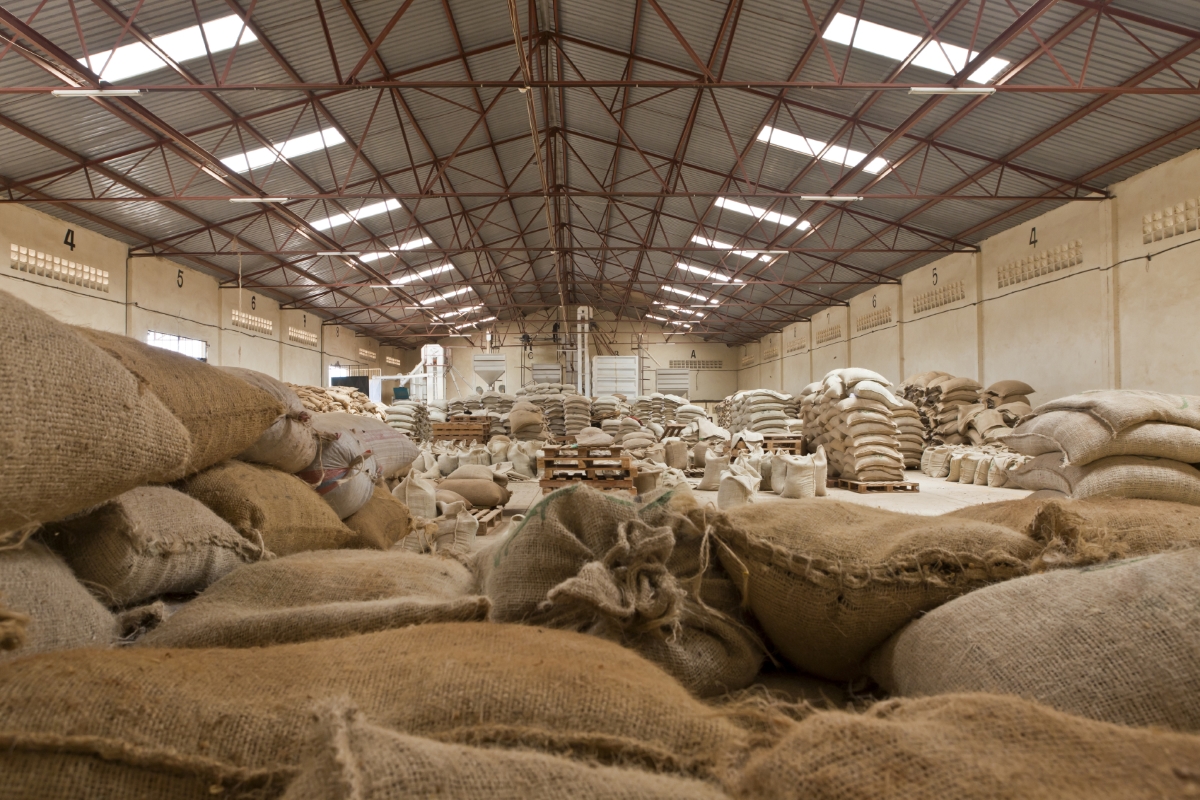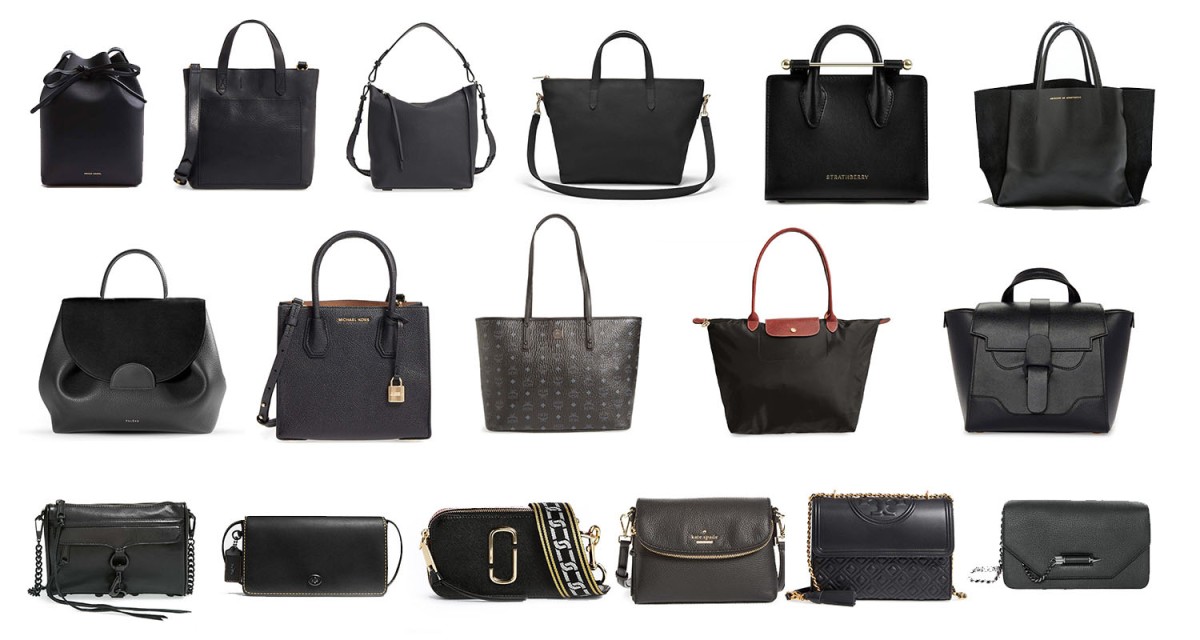Exploring Nigeria’s Leading Commodity Trading Company: An Introduction to Wigmore Trading
Exploring Nigeria’s Leading Commodity Trading Company: An Introduction to Wigmore Trading
Are you ready to dive into the exciting world of commodity trading in Nigeria? Look no further, because today we are taking you on a journey to explore Wigmore Trading, the country’s leading commodity trading company. Get ready to uncover their secrets to success, learn about their extensive range of products, and discover how they are shaping the future of Nigeria’s economy. Whether you’re an aspiring trader or simply curious about this booming industry, this introduction is your gateway to a thrilling adventure with Wigmore Trading!
Introduction to Wigmore Trading
Wigmore Trading is a leading commodity trading company based in Nigeria. Established in 2011, the company has rapidly grown to become one of the most trusted and reliable names in the Nigerian market. With a strong focus on providing high-quality products and exceptional customer service, Wigmore Trading has cemented its position as a top player in the country’s commodity sector.
The company specializes in sourcing, processing, and distributing a wide range of agricultural commodities such as grains, pulses, spices, and oilseeds. It also deals with industrial raw materials like rubber and cocoa beans. Wigmore Trading sources these commodities directly from farmers across Nigeria and other African countries, ensuring fair prices for both producers and consumers.
At Wigmore Trading, our mission is to promote sustainable agriculture practices while ensuring food security for our customers. We believe that by working closely with local farmers and investing in modern farming techniques, we can contribute towards building a stronger and more resilient agricultural sector in Nigeria.
One of Wigmore Trading’s core values is quality assurance. We understand the importance of delivering safe and healthy products to our customers. Hence, all our products go through rigorous quality checks before they are packaged for distribution. Our state-of-the-art processing facilities adhere to international standards and are regularly inspected by government authorities to ensure compliance.
– Brief history and background of the company
Wigmore Trading is a leading commodity trading company based in Nigeria. The company has a rich history and an impressive background that have contributed to its success and prominence in the Nigerian market.
Founded in 1999 by Mr. Oluwatoyin Adeshina, Wigmore Trading started as a small family-run business specializing in the importation of agricultural commodities such as rice, maize, soybeans, and sorghum. With a passion for entrepreneurship and a keen eye for opportunities, Mr. Adeshina saw the potential for growth in Nigeria’s agricultural sector and decided to take advantage of it.
In its early years, Wigmore Trading faced many challenges typical of start-up businesses such as financial constraints, limited resources, and competition from established companies. However, with determination and perseverance, the company continued to thrive despite these obstacles.
One significant milestone for Wigmore Trading was when they secured their first major contract with the Nigerian Government to supply rice to public schools across the country. This contract not only boosted the company’s revenue but also opened doors to other government contracts and partnerships with international organizations.
Over time, Wigmore Trading expanded its product range beyond just agricultural commodities. They ventured into other sectors such as construction materials, consumer goods, industrial raw materials, and more recently pharmaceuticals.
– Mission and vision statement
Mission and vision statements are essential pillars of any successful business, as they define the purpose and direction of a company. In the case of Wigmore Trading, these statements play a crucial role in guiding the company towards its goal of becoming Nigeria’s leading commodity trading company.
The mission statement of Wigmore Trading is to provide high-quality agricultural produce and raw materials to local and international markets, while also fostering sustainable partnerships with farmers and suppliers. This reflects the company’s dedication to not only meeting the demand for commodities but also ensuring that it is done in an ethical and environmentally responsible manner.
Wigmore Trading’s vision statement is to be at the forefront of Nigeria’s commodity trading industry by continuously innovating and adapting to market trends. This vision drives the company to stay ahead of its competitors by constantly seeking new opportunities, investing in modern technologies, and expanding its product portfolio.
At its core, both statements emphasize Wigmore Trading’s commitment to excellence, integrity, and customer satisfaction. The company strives to maintain these values in all aspects of its operations, from sourcing products directly from trusted farmers to providing efficient delivery services for customers’ convenience.
Moreover, Wigmore Trading understands that success cannot be achieved without considering societal impact. Therefore, their mission includes promoting sustainable farming practices among their network of suppliers. By doing so, they contribute towards creating a more sustainable future for Nigerian agriculture while also delivering quality products.
What is Commodity Trading?
Commodity trading is the buying and selling of physical goods, such as agricultural products, metals, and energy resources. These goods are known as commodities because they are interchangeable with other products of the same type and have a uniform quality.
The trading of commodities has been an essential part of human history for centuries, with ancient civilizations engaging in trade to acquire valuable resources from distant lands. Today, commodity trading has evolved into a sophisticated global market that plays a crucial role in the economy.
In commodity trading, investors buy or sell contracts for future delivery of a particular commodity at an agreed price. These contracts act as a promise to either buy or sell the underlying asset at a specified date in the future. It provides producers and buyers with certainty about prices and helps them manage their risks while also providing liquidity to the market.
One of Nigeria’s leading commodity trading companies is Wigmore Trading. Established in 2005, Wigmore Trading specializes in sourcing high-quality agricultural products from local farmers and exporting them to international markets. They offer various commodities such as cocoa beans, cashew nuts, sesame seeds, shea butter, ginger powder, among others.
Wigmore Trading’s success can be attributed to its strong relationships with local farmers and its commitment to fair trade practices. The company works closely with smallholder farmers across Nigeria by providing them with training on sustainable farming practices and offering competitive prices for their products.
– Definition and explanation of commodity trading
Commodity trading is a type of financial transaction that involves buying and selling commodities such as oil, agricultural products, precious metals, and other raw materials. These commodities are traded on various exchanges around the world, with prices determined by supply and demand.
In simple terms, commodity trading can be described as the buying and selling of physical goods rather than stocks or bonds. It is an essential part of the global economy, as it allows producers to find buyers for their products and consumers to purchase goods at competitive prices.
One of the key features of commodity trading is that it involves standardized contracts for specific quantities of a particular product. This means that traders do not physically exchange the underlying asset but trade in futures contracts, which represent an agreed-upon quantity and quality of the commodity at a future date.
Commodities can be classified into two categories – hard or soft commodities. Hard commodities refer to natural resources such as crude oil, natural gas, gold, silver, copper, etc., while soft commodities include agricultural products such as wheat, corn, soybeans, cocoa beans, coffee beans, etc.
The concept of commodity trading has been around for centuries but has evolved significantly over time. In ancient times when bartering was common practice among civilizations, commodities were exchanged directly between parties without any intermediaries involved. However now in modern times with technological advancements and globalization playing a significant role in trade activities across borders; commodity trading has become more complex and sophisticated.
– Importance of commodity trading in Nigeria’s economy
Commodity trading plays a vital role in the economy of Nigeria, as it is one of the key industries that drives economic growth and development. In recent years, there has been a significant increase in the demand for commodities both locally and globally, making Nigeria’s commodity sector an important player in the global market.
Here are some reasons why commodity trading is crucial for Nigeria’s economy:
1. Boosts economic growth: The export of commodities such as oil, natural gas, cocoa beans, palm oil, and other agricultural products contributes significantly to Nigeria’s GDP. With a large share of its revenue coming from commodity exports, any fluctuations or changes in prices can have a considerable impact on the country’s economic stability.
2. Diversifies the economy: Commodity trading helps to diversify Nigeria’s economy by reducing its reliance on oil exports. By promoting other sectors like agriculture and minerals, commodity trading creates new opportunities for employment and income generation in various regions of the country.
3. Attracts foreign investment: As one of Africa’s largest economies and top commodity exporters, Nigeria attracts significant foreign investment in its commodity sector. This not only brings capital into the country but also encourages technology transfer and expertise sharing between local producers and international traders.
4. Supports smallholder farmers: The majority of Nigerians live in rural areas where agriculture is their main source of livelihood. The growth of commodity trading has provided an avenue for smallholder farmers to access better markets for their produce at fair prices.
The Products Traded by Wigmore Trading
Wigmore Trading is a leading commodity trading company in Nigeria, providing high-quality products and services to clients across various industries. As a premier trading company, Wigmore offers a wide range of products to meet the diverse needs of its customers. In this section, we will take a closer look at the extensive list of products traded by Wigmore Trading.
1. Agricultural Commodities
Agriculture is an essential sector in Nigeria, and Wigmore Trading recognizes its importance by offering a variety of agricultural commodities. These include cash crops such as cocoa, coffee, and rubber, as well as staple foods like rice, maize, and wheat. The company also deals in livestock products such as poultry and meat. With their strong network of suppliers and farmers across the country, Wigmore ensures that all their agricultural products are of the highest quality.
2. Industrial Raw Materials
Wigmore Trading also supplies industrial raw materials to manufacturing companies in Nigeria. These include metals like iron ore, copper cathode, zinc ingots, aluminum ingots, among others. They also trade in minerals such as coal and gold which are used for energy production and jewelry making respectively.
3. Petroleum Products
Being one of the largest oil-producing countries in Africa has enabled Nigeria to have a vast reserve of petroleum resources. Wigmore Trading takes advantage of this by supplying petroleum-based products such as crude oil, diesel fuel oil (DFO), gasoline (PMS), liquefied natural gas (LNG) among others to local
– Petroleum products
Petroleum products are one of the most essential commodities in the world and Nigeria is no exception. As Africa’s largest oil producer, petroleum products play a crucial role in the country’s economy. This makes it a highly sought-after commodity for both local and international trade.
Wigmore Trading recognizes the importance of petroleum products in the Nigerian market and has established itself as a leading importer, exporter, and distributor of these products. With over 20 years of experience in trading commodities, Wigmore Trading has built strong relationships with major refineries and suppliers to ensure consistent supply and competitive pricing.
Some of the key petroleum products that Wigmore Trading deals with include:
1. Crude Oil: As Nigeria’s top export product, crude oil accounts for over 90% of the country’s total exports. It is also one of Wigmore Trading’s main commodities, with significant volumes being traded annually. The company sources its crude oil from major producers such as Shell, ExxonMobil, Chevron, and Total.
2. Refined Petroleum Products: Nigeria has four major refineries which produce various refined petroleum products such as gasoline (petrol), diesel, kerosene, jet fuel, liquefied petroleum gas (LPG), and others. These products are vital for domestic consumption as well as for export purposes. Wigmore Trading imports refined petroleum products from reputable refineries globally to meet local demand.
– Types of petroleum products traded
Nigeria is one of the largest producers of petroleum products in Africa, making it a prominent player in the global commodity market. The country’s vast oil reserves and well-developed infrastructure have enabled it to become a major exporter of various types of petroleum products. These products are essential for powering industries, transportation, and everyday life, making them highly sought after commodities in international trade.
Wigmore Trading is at the forefront of Nigeria’s petroleum product trading industry, offering a wide range of high-quality products to meet the diverse needs of its clients. Let us take a closer look at some of the most commonly traded petroleum products by Wigmore Trading:
1. Crude Oil: As one of the world’s top exporters of crude oil, Nigeria produces and trades large quantities of this commodity every year. Crude oil is a raw material extracted from underground reservoirs and is then refined into various other products such as gasoline, diesel fuel, jet fuel, lubricants, and more.
2. Gasoline: Also known as petrol or motor spirit, gasoline is derived from crude oil through refining processes. It is widely used as fuel for automobiles and other machinery industries worldwide.
3. Diesel: Another essential product refined from crude oil is diesel fuel. It has higher energy density compared to gasoline and is mostly used to power heavy-duty vehicles like trucks and buses.
4. Jet Fuel: With Nigeria having an extensive aviation industry, jet fuel or aviation turbine kerosene (ATK) plays a crucial role in the country’s petroleum product trade. It is a type of refined kerosene used to power aircraft, making it a high-value commodity.
5. Liquefied Petroleum Gas (LPG): Also known as propane or butane gas, LPG is a clean-burning fuel source used for cooking, heating, and other industrial purposes. Nigeria is one of the largest producers and exporters of LPG in Africa, making it an important player in the global market.
6. Natural Gas: Nigeria has significant natural gas reserves and is one of the top exporters of this commodity globally. Natural gas is a versatile fossil fuel used for electricity generation, cooking, heating, and more.
7. Bitumen: Another important petroleum product traded by Wigmore Trading is bitumen. It is a sticky, black viscous liquid extracted from crude oil and used in road construction, roofing materials, and waterproofing products.
8. Lubricants: Nigeria also trades various types of lubricants such as engine oils, transmission fluids, greases, and industrial oils sourced from crude oil refining processes.
In addition to these products, Wigmore Trading also trades other petroleum-based commodities like paraffin wax, asphalt, fertilizers produced from natural gas like urea and ammonia.
– Sources and suppliers
Wigmore Trading is a leading commodity trading company in Nigeria, known for its excellent quality products and exceptional customer service. Behind the success of this company lies a robust system of sourcing and procuring the best quality commodities from reliable suppliers.
In this section, we will take a closer look at Wigmore Trading’s sources and suppliers, and how they contribute to the company’s reputation as one of the most trusted names in the Nigerian market.
1. Local Farmers and Producers:
Wigmore Trading prides itself on supporting local farmers and producers by sourcing their products directly from them. This not only ensures that Wigmore Trading provides fresh produce to its customers but also helps in promoting sustainable agriculture practices in the country. By working closely with these farmers, Wigmore Trading is able to offer competitive prices for their products without compromising on quality.
2. International Suppliers:
In addition to working with local farmers, Wigmore Trading also has partnerships with international suppliers who provide high-quality commodities from around the globe. These suppliers are carefully selected based on their track record of reliability, consistent product quality, and ethical business practices.
3. Quality Control Measures:
Wigmore Trading understands the importance of ensuring that all its products meet international standards of quality. As such, the company has strict quality control measures in place at every step – from sourcing to packaging and delivery – to ensure that only the finest products reach its customers. This includes regular inspections at farms and production facilities to maintain consistency in product standards.
– Market demand and trends
Market demand and trends play a crucial role in the success of any commodity trading company, and Wigmore Trading is no exception. With a deep understanding of Nigeria’s economy and its ever-evolving needs, this leading commodity trading company has been able to stay ahead of the curve and meet market demands effectively.
One of the main driving forces behind the demand for commodities in Nigeria is its rapidly growing population. As Africa’s most populous country, with an estimated 206 million people, there is a constant need for essential goods such as food, clothing, and household items. This presents a significant opportunity for Wigmore Trading to tap into this vast consumer market.
In recent years, there has also been a noticeable shift towards more health-conscious consumers in Nigeria. The increasing awareness about health and wellness has led to a rise in demand for organic produce, superfoods, and other natural products. Recognizing this trend early on, Wigmore Trading expanded its product range to include high-quality organic options that cater to this growing market segment.
Another significant trend in Nigeria’s commodity market is the rise of e-commerce platforms. With the increasing accessibility of smartphones and internet connection across the country, online shopping has become more popular than ever before. This has opened up new avenues for companies like Wigmore Trading to reach consumers directly through their online store or third-party e-commerce platforms.
– Mineral products
Mineral products are an integral part of Nigeria’s economy, accounting for a significant portion of the country’s exports and contributing to its overall economic growth. As a leading commodity trading company in Nigeria, Wigmore Trading has established itself as a major player in the mineral products market. In this section, we will explore some of the key mineral products traded by Wigmore Trading and their importance in both local and international markets.
1. Oil and Gas: Nigeria is one of the top oil-producing countries in Africa, with daily production averaging around 2 million barrels per day. The country’s oil reserves are estimated to be over 37 billion barrels, making it a major exporter of crude oil and natural gas. Wigmore Trading is actively involved in the trading of these valuable resources, working closely with local producers to facilitate their export to various international markets.
2. Solid Minerals: Apart from oil and gas, Nigeria also possesses vast deposits of solid minerals such as gold, iron ore, coal, tin, zinc, lead, and many others. These minerals have immense potential for commercial exploitation and have become an increasingly important source of revenue for the Nigerian government. Wigmore Trading plays a crucial role in facilitating the exportation of these minerals by providing expert sourcing services for interested buyers across the globe.
– Types of mineral products traded
Wigmore Trading is one of the top commodity trading companies in Nigeria, specializing in the import and export of various mineral products. With years of experience and a strong network of suppliers and buyers, Wigmore Trading has established itself as a trusted name in the industry. In this section, we will take a closer look at some of the types of mineral products that are traded by Wigmore Trading.
1. Agricultural Products: Agriculture is one of the key sectors in Nigeria’s economy, and Wigmore Trading plays an important role in facilitating trade for agricultural products such as cocoa beans, cashew nuts, sesame seeds, and more. These products are sourced directly from local farmers and exported to international markets.
2. Solid Minerals: Nigeria is blessed with abundant natural resources including solid minerals such as gold, iron ore, copper, lead-zinc, and coal. Wigmore Trading has extensive expertise in sourcing these minerals from different parts of the country and exporting them to global markets where there is high demand.
3. Metals: As a leading commodities trading company in Nigeria, Wigmore Trading also deals with various metals like aluminum ingots, zinc ingots, copper cathodes, etc., which are used in industries like construction and manufacturing.
4. Energy Products: Nigeria is known for its vast oil reserves making it one of the largest oil-producing countries in Africa. Through its well-established network within the energy sector, Wigmore Trading deals with crude oil exports as well as refined petroleum products like gasoline (petrol), diesel, and kerosene.
5. Precious Stones: Nigeria is also rich in various precious stones such as diamonds, emeralds, sapphires, and rubies. Wigmore Trading sources these stones from local miners and exports them to international markets where there is a high demand for these rare gems.
6. Chemicals: Wigmore Trading also deals with the importation of chemicals used in various industries like pharmaceuticals, cosmetics, agriculture, etc. These include products like sulfuric acid, caustic soda, methanol, and more.
7. Fertilizers: As an agricultural-based economy, Nigeria has a high demand for fertilizers to improve crop production. Wigmore Trading sources fertilizers from international suppliers and distributes them to farmers across the country.
8. Liquefied Natural Gas (LNG): LNG is becoming an increasingly popular source of energy globally due to its clean-burning nature. Wigmore Trading deals with the export of liquefied natural gas from Nigeria’s vast reserves to global markets.
In conclusion, Wigmore Trading specializes in trading a wide range of mineral products that are crucial for economic growth and development.








Comments are closed.